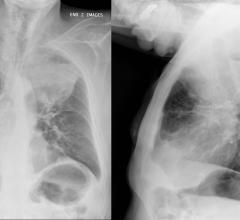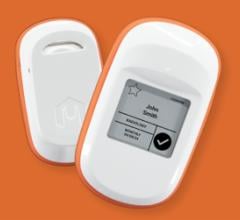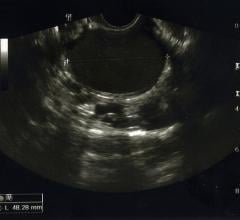September 18, 2017 — Mary Washington Hospital and Union Health-Union Hospital will both receive Safety FiRsT grants to implement safety initiatives that will elevate radiologic technologist safety in the workplace. Launched in 2015 by the American Society for Radiologic Technologists (ASRT) Foundation and Toshiba America Medical Systems Inc., the Safety FiRsT program awards two ASRT members per year a grant of up to $7,000 each to improve radiologic technologist safety in their departments.
This year’s recipients are:
- Ericka Lasley, R.T.(R), who applied on behalf of Mary Washington Hospital in Fredericksburg, Va. The grant will be used to purchase lightweight and lead-free aprons that provide 20 percent more protection than standard lead-based equivalents. The new aprons will provide a more ergonomically correct fit as well as help to alleviate neck, shoulder, and back fatigue and pain due to their lighter weight. The hospital will conduct in-service training on the new lead-free alternative and improved protection to ensure proper use, care and storage of the aprons. They are purchasing a range of apron sizes to accommodate all members of the staff; and
- Meghan Whittaker, R.T.(R), who applied on behalf of Union Health-Union Hospital in Terre Haute, Ind. The grant will be used to purchase a magnetic resonance imaging (MRI) safe cart. The cart will raise and lower for proper positioning of the patient and proper ergonomics for the technologist, thus reducing employee injuries during patient transfer and positioning. The grant will also facilitate in-service training on proper cart-to-table transfers, wheelchair-to-bed transfers and gait-belt transfers, as well as the purchase of Safety Essentials continuing education modules for radiologic technologist staff members. In addition, the organization’s fitness center employees will speak to team members about the importance of core strength in relation to patient transfers and also help employees increase their core strength.
As program manager for the School of Radiologic Technology at Mary Washington Hospital, Lasley said she remembers having to wear lead aprons all morning while working in a fluoroscopy room or attending long cases in the OR.
“By the end of the day, the shoulder, neck, back and leg pain could be just miserable,” she recalled. “I am extremely excited to provide our technologists with new, lightweight, ergonomically-correct, lead-free aprons.”
Whittaker, imaging services clinical educator at Union Health-Union Hospital, said it was her technologists who actually came up with the idea of purchasing an MRI safe cart and requested additional training on transferring patients.
“The technologists are very excited and really looking forward to this,” she said. “We’re very patient-centered and safety-centered here, so it just fits right in with our goal of reducing injuries and keeping technologists safe.”
Now in its third year, the Safety FiRsT program is helping healthcare facilities to create safer work environments for radiologic technologists. In 2016, Christine Bak, R.T.(R)(T), of Hartford Hospital in Connecticut, was awarded a grant to purchase and install an overhead lifting device to assist in raising patients from a prone or supine position. Additionally, Jennifer Maquez, R.T.(R)(MR), of Boca Raton Hospital in Florida, received a grant to purchase walkers and wheelchairs made of non-magnetic materials for safety in an MR suite.
The ASRT Foundation and Toshiba Medical Safety FiRsT grants are funded by a grant from Toshiba Medical.
For more information: www.asrt.org


 April 17, 2024
April 17, 2024 








